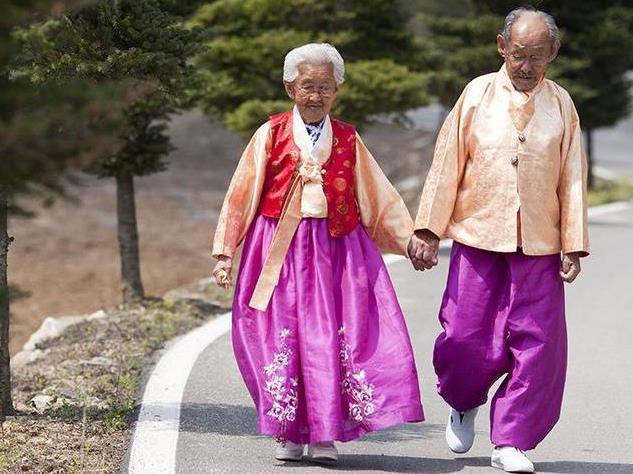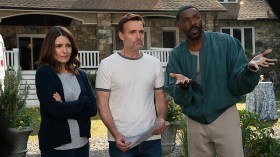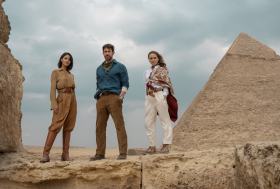Image: miff.com.au
In an age of soaring divorce rates, the concept of long-term marriage is a curiosity. Accordingly, pondering the forces — romance, duty and otherwise — that keep a couple together for several decades isn’t just fascinating; it’s a portal into a world increasingly rare and unattainable. While first-time filmmaker Jin Mo-young clearly shares an interest in the power of connection, his debut effort is scarcely concerned about the institution of matrimony. Instead, he explores the heart-wrenching details specific to a kindly Korean duo approaching the end of their seven-decade union.
Both a personal portrait and a picture of wedded bliss in microcosm, theirs is a tale that demonstrates the depths of complexity surrounding lengthy relationships. Indeed, as My Love, Don’t Cross That River observes its central twosome, it uses their bond to say more about the nature of love and the lingering presence of loss and death than most films could ever dream to glean.
For 76 years, Jo Byeong-man and Kang Kye-yeol have lived as husband and wife, meeting when the latter was only 14. At the time of filming, he is 98 and ailing, while she is 89 and forced to face the fact that her life might have to go on without him. Consequently, they live in the present with their minds always casting back to younger times, and with their eyes always cognisant of their encroaching mortality. Valuing the small things becomes their unspoken mantra, a maxim stripped of its cliché when placed in the context of looming finality.
The path the narrative of their later years takes is far from surprising, illness, arguing family members, aired regrets and memories of days and people long gone all featuring, as well as a touching lament about the six of their twelve children no longer with them. And yet, their routine existence is far from mundane. The factors that have helped them weather life’s ups and downs — affection, understanding and intimacy chief among them — continue to shine brightly, sometimes competing for prominence with the colourful matching traditional outfits they don whenever they venture beyond their remote dwelling.
Just as closeness and empathy proves crucial to the longevity of their marriage, it also becomes a driving force in both capturing their story and conveying the weight of emotion behind it. That Mo-young, also acting as the documentary’s cinematographer, largely points a camera their way and watches slivers of their lives pass is a testament to how much can be seen by simply talking the time to stop and look. Like subjects, like filmmaker, it seems. As he intercuts between Byeong-man and Kye-yeol’s surprisingly lively forms framed against their rural surroundings, and the minutiae of plant and animal life around them, the haunting, touching and enduring beauty of their moments left together — and of those who can survive hardship to find their own romantic source of solace — is made plain.
Rating: 4 stars out of 5
My Love, Don’t Cross That River
Director: Jin Mo-young
South Korea, 2014, 86 mins
Melbourne International Film Festival
July 30 – August 16
Actors:
Director:
Format:
Country:
Release:





